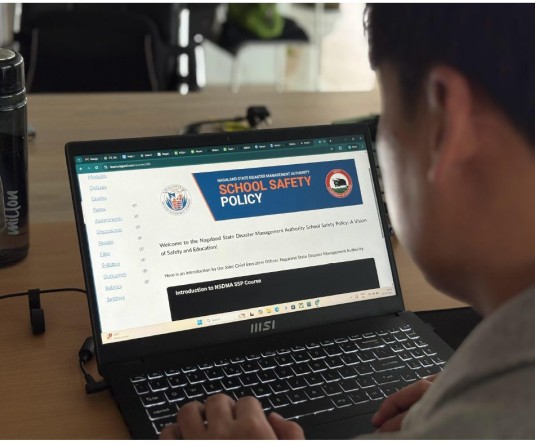
Dear Thuingaleng Muivah,
The serious allegation you once again made against me during your interaction with representatives of the Angami Public Organization and elders of the community in Kohima on the 9th of July, 2010, compel me to write this letter to you. How I wish I do not have to do this at this moment.
It has been brought to my attention that you accused me to be one of the persons who sent the late Veniyi Rakho to eliminate you and some of your colleagues at your camp on the eastern border at the initial stage of the Shillong Accord crisis. It was with a sense of utter disbelief that I came to know about your outrageous allegations against me once again. I have to say I am deeply disturbed by the readiness with which you make serious accusations that are highly dangerous for those accused mainly on the basis of your suspicion or possibly annoyance.
I had written to you earlier on the 29th of May 1999 (copy enclosed) categorically refuting the very serious charges against me that you had made then also to a relation of mine. The above charge was one of them. Yet there was no reply from you. I am well into the evening of my life. I have examined my life and I am at peace about meeting my Creator because a blood-guilty conscience for having played God with the lives of anyone at any time, as accused by you, is not one of the sins I have brought to Christ for his forgiveness. I state this without any self-righteousness, but with simple, fearful gratitude that by His Grace I was preserved.
My life and that of my late husband Lungshim Shaiza have been an open book for our people to read and there is absolutely nothing, I repeat nothing, for me to hide. During some of the most difficult years in our people’s crisis we were doing the little we could to save lives. There was no question of my sending anyone in whatever way you interpret, to eliminate you or anybody else. This I declare with a clear conscience.
In the given situation that prevailed especially in the ‘70s, our home frequently became the refuge and meeting place of our freedom fighters and for villagers who were facing the brunt of the persecution and suppression meted out by the Indian army as well as the administration. Lungshim and I were placed in an unenviable position. While others had settled into comfortable, not easily accessible positions, the poor and helpless villagers experiencing unbearable harassment and atrocities poured into our home for help and we had to help them out disregarding the risks involved. It was our privilege and duty to serve them though what we could do was always so inadequate.
My family and I have also struggled with the allegations about our role in the signing of the Shillong Accord and post events leading to the acrimony, bitterness and bloodbath amongst the Nagas. We were part of the complicated crisis that led to the Accord insofar as so much of the hectic communications traffic involved passed through our home also. But to accuse us therefore of being responsible for more in the tragedy of the Accord that befell our people is unjust and arbitrarily motivated.
The event of 27th January, 1990 when Lungshim’s life was mercilessly ended, has left a terrible wound in me and my family. This I say as a wife, mother and grandmother not only to my immediate family, but also to the larger Naga family.
What do you actually want, Thuingaleng Muivah? From my side I am willing to go on record before the Naga people to take oath and testify in the presence of Elders, the Church and responsible organizations to completely refute your wild, baseless allegations which keep surfacing time and again.
The serious charges against me were made by you in my absence from a public platform. I have no choice therefore but to make this statement public to refute the charges. Almighty God is my judge. My conscience is clear as, rising above my private grief and mourning over the brutal elimination of my beloved husband, I make this solemn statement for Nagas of today and the coming generations to judge.
My humble prayer is that this categorical clarification by me will help open a small door to reconciliation and healing desperately needed by our society now.
In the name of God,
I remain,
Rano M. Shaiza




